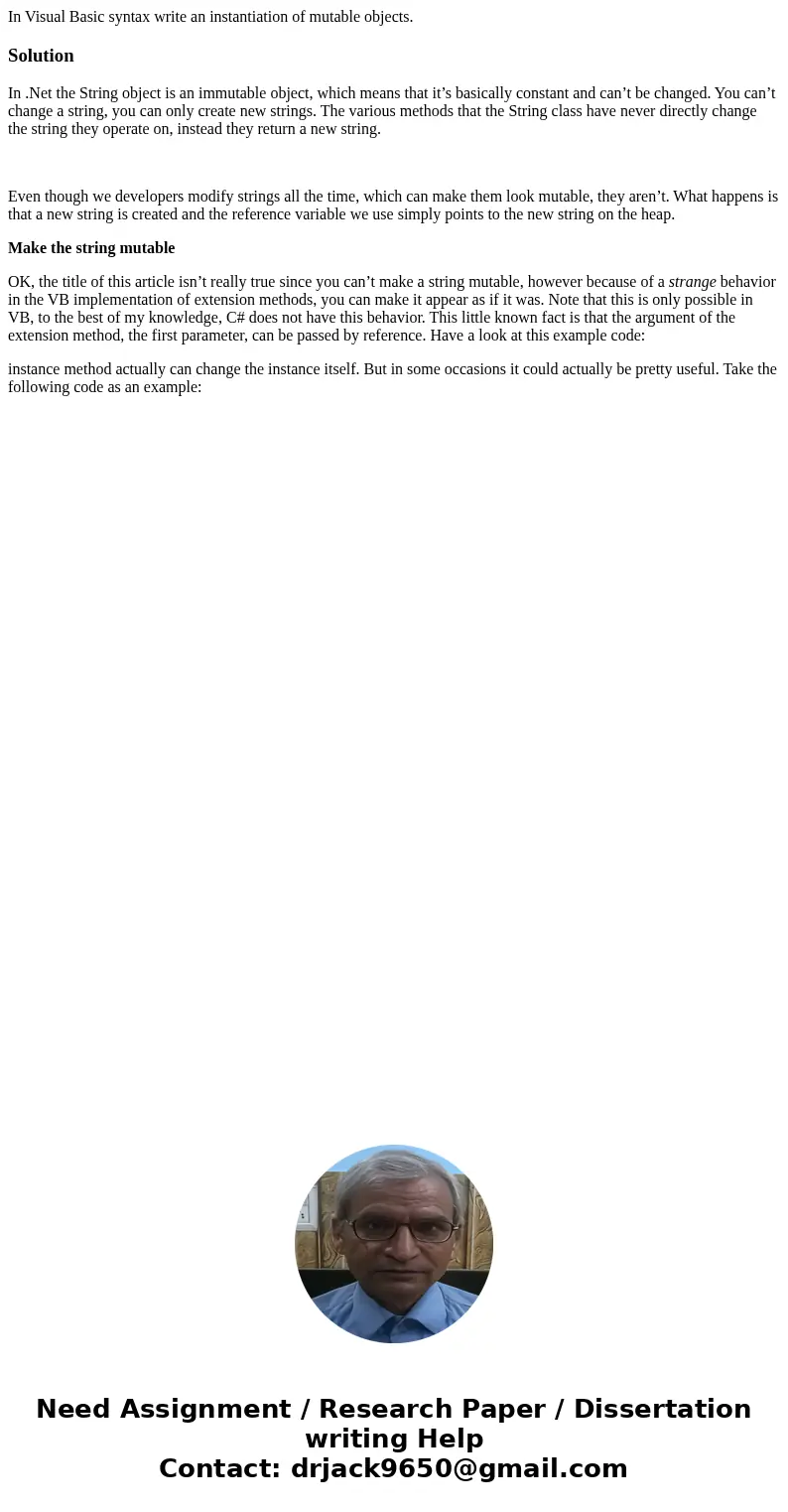In Visual Basic syntax write an instantiation of mutable obj
Solution
In .Net the String object is an immutable object, which means that it’s basically constant and can’t be changed. You can’t change a string, you can only create new strings. The various methods that the String class have never directly change the string they operate on, instead they return a new string.
Even though we developers modify strings all the time, which can make them look mutable, they aren’t. What happens is that a new string is created and the reference variable we use simply points to the new string on the heap.
Make the string mutable
OK, the title of this article isn’t really true since you can’t make a string mutable, however because of a strange behavior in the VB implementation of extension methods, you can make it appear as if it was. Note that this is only possible in VB, to the best of my knowledge, C# does not have this behavior. This little known fact is that the argument of the extension method, the first parameter, can be passed by reference. Have a look at this example code:
instance method actually can change the instance itself. But in some occasions it could actually be pretty useful. Take the following code as an example:

 Homework Sourse
Homework Sourse